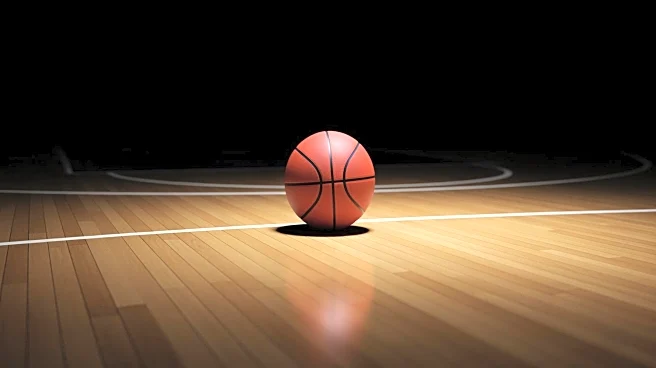What's Happening?
Kobe Sanders, a player for the Los Angeles Clippers, is currently listed as questionable for the upcoming game against the Phoenix Suns due to a sprained right knee. This marks the potential for Sanders to miss his sixth consecutive game, as he continues
to recover from the injury. Sanders, who is a two-way player, has been dealing with this knee issue, which has kept him out of the rotation for several games. Despite his absence, the impact on the team's overall rotation is expected to be minimal, given his role within the team structure.
Why It's Important?
The ongoing injury situation with Kobe Sanders highlights the challenges teams face with player health and availability, particularly in the demanding schedule of the NBA. While Sanders' absence may not significantly alter the Clippers' rotation, it underscores the importance of depth and adaptability in professional sports teams. For Sanders, the injury could affect his future playing time and development, especially as a two-way player looking to establish himself further in the league. The Clippers will need to manage their roster effectively to maintain performance levels in his absence.
What's Next?
The Clippers will continue to monitor Sanders' recovery and make decisions based on his health status. If Sanders remains out, the team may need to adjust their strategies and player rotations to compensate for his absence. The medical staff will likely focus on ensuring Sanders' knee is fully healed before he returns to play, to prevent further injury. Fans and analysts will be watching closely to see how the Clippers manage this situation and whether Sanders can return to the court soon.
Beyond the Headlines
This situation also brings attention to the broader issue of player injuries in the NBA and the impact they have on team dynamics and individual careers. The league's rigorous schedule often leads to injuries, prompting discussions on player welfare and the need for effective injury prevention and management strategies. Sanders' case may contribute to ongoing conversations about how teams can better support players in their recovery processes.
















